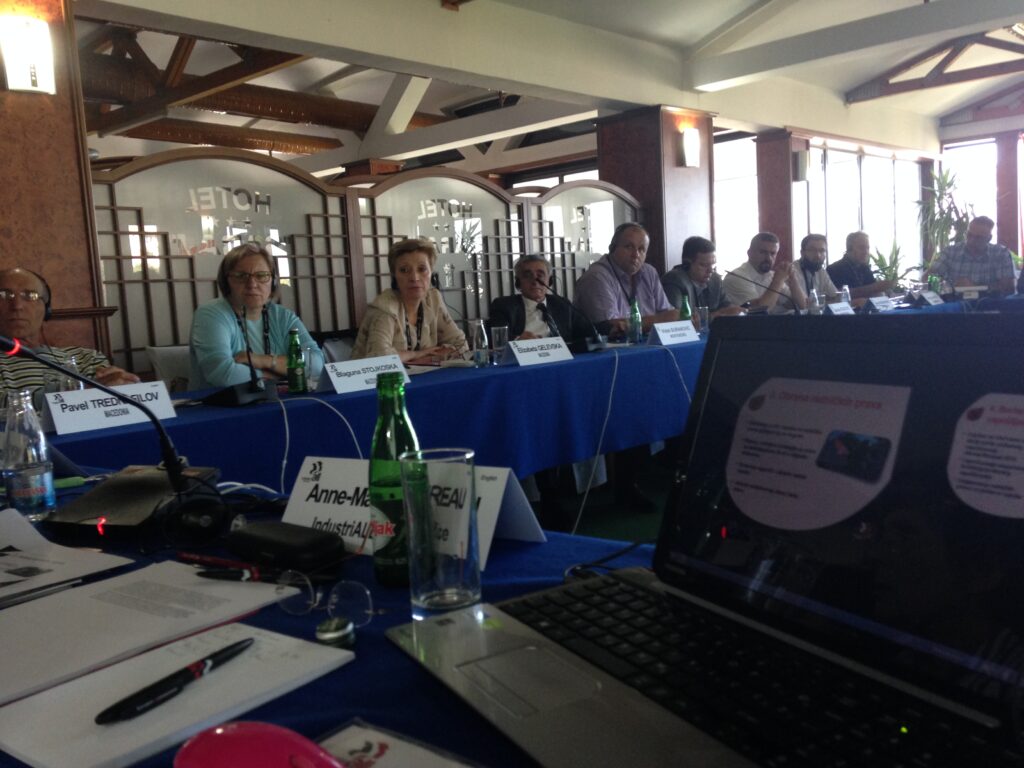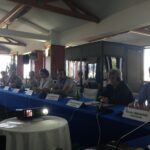15 September, 2015Trade unions in South East Europe are operating in an adverse environment. At a workshop in Sarajevo, union representatives from the region voiced their determination to fight for improved protection of workers’ rights in legislation and stop the expansion of precarious work.
The countries of Bosnia & Herzegovina, Macedonia and Montenegro are experiencing restructuring and privatization, with industry jobs expected to be lost as a result. High unemployment rates have led to massive violation of workers’ rights and there are no real sanctions against employers that abuse the laws. Wages are often not paid, sometimes for months.
Precarious work, membership development and unity building were key issues on the agenda of a workshop held on 8-9 September 2015 in Sarajevo, Bosnia and Herzegovina. Participants at the workshop firmly denounced the complicity between employers and the political elite, and the lack of genuine social dialogue at all levels.
Under pressure from international financial institutions of Bosnia-Herzegovina recently adopted a new Labour Act, extending the time during which a worker can be hired on a fixed-term contract from two to three years. Debates are going on in the Serb Republic of Bosnia and new legislation is expected soon. Temporary contracts may be renewed up to five years in Macedonia and two years in Montenegro.
Kata Iveljić, president of the Trade Union of Chemistry and Non Metal Workers of Bosnia & Herzegovina said:
In the Federation of Bosnia-Herzegovina we have a new Labour Law which weakens workers’ rights. Our union has to renegotiate and align the general and branch collective agreements with the new provisions in the Law. We will seek to ensure that the rights enjoyed by workers are being maintained in the new agreements. We will also challenge the new legislation that was adopted without union consultation.
IndustriALL Global Union’s affiliates reported that fixed-term employment contracts have become common practice, particularly in the case of greenfield investment. In Macedonia, all new jobs created in the industrial development zones are temporary. Besides lax labour legislation, the government offers various incentives to multinational companies that set up plants in these zones, so allowing them to garner huge benefits at the expense of workers.
Auto parts manufacturers in particular are employing thousands of people on fixed-term contracts and with poor wages (€150-160 per month). These developments are slowly impacting on working conditions in other companies.
Lively discussions were held on the issue of organising and union building. Employers claim publicly that they respect legislation and the right to organise, but in reality they resort to various tactics and covert means of pressure to prevent workers from doing so.
Pavel Trendnafilov, president of the Trade Union of Civil Engineering, Industry and Planning of Macedonia stated:
Macedonia has not been immune from the global trend towards precarious work. It is a major obstacle to organizing since workers on temporary employment contracts are scared that their contacts will not be renewed if they join a union
Union leaders at the workshop stressed the importance of networking at regional and global level to better advance their rights and assist one another in organising and collective bargaining campaigns.
IndustriALL Global Union and its European sister organisation will continue to work with affiliates in the region and support their struggle for decent working conditions and sustainable livelihood.




